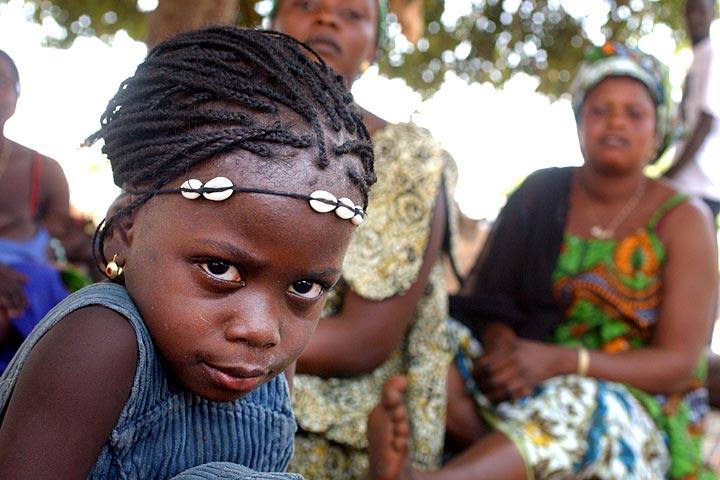Salaam Malikoom! You are now hearing from an official Peace Corps Volunteer! We had our swearing in ceremony (at the U.S. Ambassador’s home – swanky!) this morning which means training is over and it’s time to head to our sites on Monday. We need to do some shopping this weekend to furnish our new (to us but freshly painted!) mud huts. My shopping list includes a prayer mat (you use them to sit outside), a propane stove, fabric for curtains and clothes (in Africa you use the same thing for both) and a bamboo bed with a foam mattress. The pricing here is kind of confusing. I got the frame of my bed for 200 Delasi which is equal to $8. It’s a full and pretty nice in a ‘developing country’ sort of way. My mattress will be a piece of foam that is approximately two inches thick which will set me back about $40 (it would be about $10 in America). You can imagine what an actual mattress would cost if they were even available, which they are not. Overall the cost of living here is extremely low though. A cab ride is usually between twenty cents and a dollar and a bean sandwich (sounds gross but is totally delicious) is about thirty cents. The only time you spend a significant amount of money on food is when you break down and buy things at the ‘toubob’ (more on that later) shop where they sell European goods that have been imported for tourists. Sometimes you just have to have that ketchup and toothpaste though. So anyway we had our ceremony this morning and
now we’re all ready to go to site!

(Front row, left to right: Albian, Melissa, Katie Angell, Whitney, Mike, Me, Yee, Leah, Annie (trainer) Back row: Travis (trainer), Chris (trainer), Katie Hofstetter, Evelyn, Jim, Steve-O, Kane)
It’s tradition for the entire group to get matching fabric and have the tailor make an outfit out of it. Speaking of ceremonies, this is my third one in nine weeks, which by Gambian standards is a slow couple of months. The people of The Gambia love ceremonies and have them pretty regularly. My first one was our ‘naming ceremony’. Traditionally you do this for a new baby (not right away, they wait at least a week to make sure everything will be okay :I ) but they also do it for Peace Corps Volunteers since we are given names so that we will have an easier time integrating into our communities. It’s a big occasion and people come from all around to eat, drink, dance, drum and generally rejoice. Here we are at our naming ceremony:

(Left to right: Steve-O St. James, Me, Adam (our language and culture trainer), Katie Angell, Whitney Moore)
We look ridiculous but no one minded because our families dressed us up and thought we looked great. They were very happy and it really is a strong bonding experience to take a Gambian name. For one thing, they have a difficult time pronouncing non-African names. On top of that there is the relationship you develop when you share the same last name with someone. My Gambian name was ‘Kaddy Camera’, I was named after one of the wives in my training village. It’s very common to be named after people here and a ton of people share the same name. I can not begin to count the number of ‘Lamins’ and ‘Fatuus’ I have met. When I visited my permanent site I changed my last name to ‘Dampha’ because that is the family name there but I kept my first name because I liked the girl I was named after. These are my co-trainees, Steve-O, Whitney and Katie. The lady in the middle is Adam. She is our language and culture facilitator and she has taught us so much in the nine weeks we’ve been with her. The ceremony itself if’s a big production. People dress in their finery, many prayers are said and they even pretend to shave your head since that’s what they do for babies during their naming ceremonies. Food is made and dancing occurs, it’s all very celebratory!
Fon Naatoo! (Until later).








